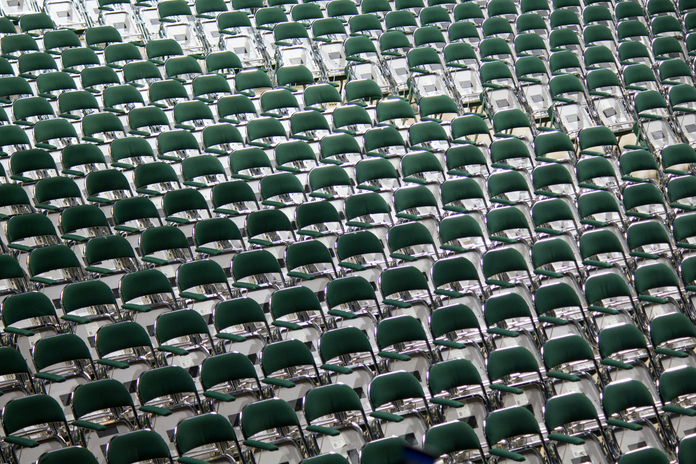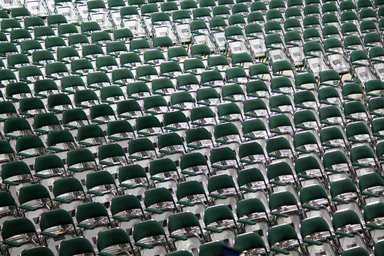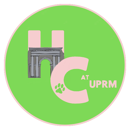Zamayra Colón also collaborated with this feature.
1. Julia de Burgos (1917-1953)
Julia de Burgos is one of the best-known and most celebrated poets in Puerto Rican culture. Her poems engage themes of feminism and social justice, as well as a combination of the intimate, the land and social struggle of the oppressed. She wrote many poetry collections such as “Poemas exactos a mi misma” (1937), “Poema en veinte surcos” (1938), “Canción de la verdad sencilla” (1939), and “El mar y tú: otros poemas” (1954). In 1987, the Hispanic Studies department of the University of Puerto Rico at Humacao posthumously honored Julia de Burgos by granting her a doctorate in Human Arts and Letters.
2. Lola Rodríguez de Tió (1843-1924)
Lola Rodríguez de Tió was a poet and liberal activist. She was responsible for writing the patriotic lyrics to the tune of “La Borinqueña” in 1868. In 1876 she she published her first book of poetry “Mis cantares” which sold 2,500 copies. The publication of her other book “ Mi libro de Cuba” and her continued revolutionary activities caused her exile to New York City, where she helped José Martí and other Cuban revolutionaries. In 1910 she helped found the Cuban Academy of Arts and Letters.
3. Concha Meléndez (1895-1983)
Concha Meléndez was an educator, poet, and writer who belongs to the artistic generation of the 1930’s and was the first woman to belong to the Puerto Rican Academy of Languages. She produced a great amount of books and newspaper articles that mainly focus on the study of Hispanic American Arts. Among her published books are: “Amado Nervo” (1926), “Pablo Neruda: vida y obra” (1936), “Generación del Treinta: cuento y novela”(1930), and many more. Thanks to her research, she won numerous prizes and recognitions from various schools and organizations, most notably, the title of Humanist Lecturer of the Year in 1979.
4. Ángela Negrón Muñoz (1892-1961)
Negrón Muñoz was a prominent journalist and feminist activist. She developed campaigns of civil citizenship, around several social problems, and organized the Society for the Defense and Well-being of Children. In 1917 she founded the Women’s Temperance Society, with the purpose of emancipating the island people from the scourge of alcoholism.
5. Mariana Bracetti Cuevas (1825-1903)
Bracetti was a prominent leader of the Puerto Rico independence movement in the late 19th century, better known for knitting the flag which was used as the national emblem of Puerto Rico in efforts for independece from Spain and to establish the island as a sovereign republic. She was also a key strategist for the Grito de Lares on September 23, 1868. Bracetti’s design is now the official municipal flag of Lares.
6. Miriam Colon Valle (1936- 2017)
Although she is known by many for her performance in Scarface, Colón was the founder of the Puerto Rican Traveling Theater in New York City. She also starred in films such as Guiding Light (1952), One-Eyed Jacks (1961),The Appaloosa (1966), One Life to Live (1968) and Goal! The Dream Begins (2005). In 1994 she was awarded with the Dramal-Logue Award for Outstanding Performance for Floating Islands at the Mark Taper Forum Theatre in Los Angeles, California. She was also awarded the National Medal of the Arts in 2015 by former president Barack Obama for her services and contribution to theatre.
7. Dolores “Lolita” Lebrón Sotomayor (1920-2010)
Known by many as the Mother of the Puerto Rican homeland, Lolita dedicated her life to fight for Puerto Rico’s independence and sovereignty. In 1941, she moved to New York City where she became a nationalist activist leader when she was barely eighteen years old. She is well-known, infamously so by many, for taking part on an attack on the US Congress on March 1,1954. During the shooting, she waved a Puerto Rican flag and exclaimed: “Viva Puerto Rico Libre!” and shot at ceiling once. In midst of her arrest she had said that she didn’t came to kill anyone, but she came to die in Puerto Rico. She later on spent a little more than twenty five years incarcerated in the women’s prison in Anderson, Virginia, until she was granted clemency in 1979 by former president Jimmy Carter.
8. Rebekah Collberg (1918- 1994)
Dr. Rebekah Colberg was the first Puerto Rican woman to win a gold medal in an international sporting event, as well as being one of the first women to ever participate in a variety of sports. She studied her bachellor’s at the University of Puerto Rico, her Master’s in Physical Education at Columbia University (where she played in the field hockey and lacrosse teams) and completed her degree in Medicine at the National Autonomous University of Mexico, wherce she was a member of their undefeated women’s basketball team. She participated in various athletic competitions but reached her peak in the 1938 Central American and Caribbean Games celebrated in Panama, where she won her two gold medals, in the discus and javelin throw. In 1946, when the games were celebrated in Barranquilla, Colombia, she won a gold medal in softball.
9. Nilita Vientós Gastón (1903-1989)
Nilita Vientós Gastón was one of the first two women to be accepted into the University of Puerto Rico Law School. She was the first woman recruited as a lawyer by the Department of Justice of Puerto Rico. She led and won the lawsuit known commonly as the Language Trial and, as a result, the Supreme Court of Puerto Rico determined that Spanish should be the official language used in courts. She established the Asomante literary magazine, considered one of the greatest Spanish-language magazines of the 20th century, where many Puerto Rican authors have been published and have been able to reach fame and critical acclaim.
10. María Isolina Ferré Aguayo (1914-2000)
Sister Isolina Ferré was a Roman Catholic nun known as the “Mother Theresa of Puerto Rico.” Since she was very young, Ferré showed a vocation for helping poor families. After completing her masters degree in the Liberal Arts, she chose the life of a nun. Her first years in the Missionary Servants were served in the town of Norton, in the Appalachian Mountains of Virginia, and on the streets of Brooklyn, NY. Her biggest social contribution came in 1968, when she initiated the Orientation and Service Center in the sector “La Playa” in Ponce, in Guayama and in Río Piedras. She was awarded with the Presidential Medal of Freedom for her work in 1999 by former president Bill Clinton.
11. Rita Moreno
Rita Moreno, born in Humacao in 1931, is a Hollywood legend, being the first and only Puerto Rican, and only Latinx, to be an EGOT–that is, an Emmy, Grammy, Oscar and Tony award winner. She won the Academy Award for Best Supporting Actress in in 1961 for her performance in West Side Story, a Grammy Award in 1972 for Best Album for Children, The Electric Company Album, a Tony Award in 1975 for her performance in The Ritz, and an Emmy in 1977 for Best Individual Performance in a Variety or Music Program.
She was also awarded the Presidential Medal of Freedom in 2004 by former president George W. Bush. She has remained active in the performing arts ever since and currently stars in the Tv series One Day at a Time.
12. Mayra Santos Febres (Born 1966)
Santos Febres sums up her vocation in just one sentence: “Give me words and I’ll do anything with them.” A writer, professor, and Hispanic Studied professor at the University of Puerto Rico at Río Piedras, Santos Febres is a fervent advocate of the just and marginalized and rejected causes of society, as well as being an anti-racism activist. Her convictions come to light in each and every one of her literary works and seminars. In 1991 she published her poems: Anamú y manigua, and Escaped Order, which won the poetry prize of the Triptych Magazine in Puerto Rico. She has also published a books of short stories, Pez de cristal for which she won the Golden Letters Award in 1994, and Oso Blanco for which she won the Juan Rulfo Short Story Award in 1996.
13. Monica Puig Marchán (Born 1993)
Mónica is a Puerto Rican professional tennis player born in San Juan and currently resides and trains in Miami, where she was raised. She rose to international fame after she won gold at the 2010 Central American and Caribbean Games, hosted in Mayagüez, and when she won silver during the 2011 Pan American Games in Veracruz, Mexico. In 2016, Puig became the first athlete to ever win a gold medal in any sport for Puerto Rico at the Summer Olympics in Rio de Janeiro, Brazil, upsetting the second-highest ranked singles player in the world, Germany’s Angelique Kerber.
Her stunning performance during the Olympics was well-documented in Puerto Rico and her electrifying final match paralized the island. Following her Olympic victory, Puig became the only unseeded female player to win gold since the reintroduction of tennis in 1988. On November 2016, Puig was presented the award for Best Female Athlete in Rio 2016 by the Association of National Olympic Committees.


